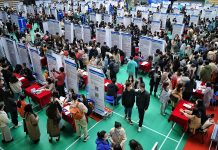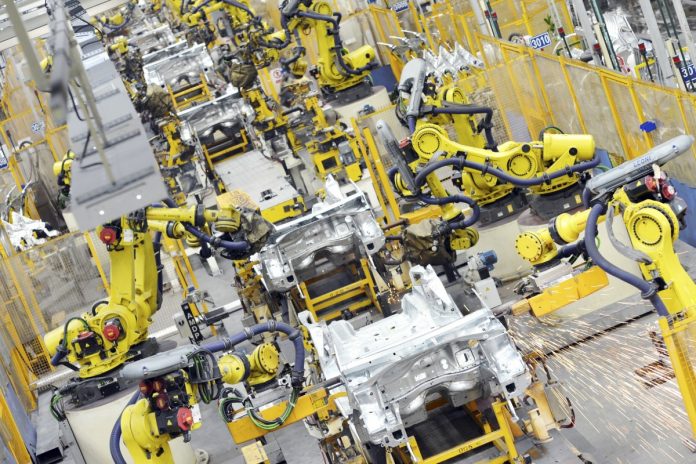China’s job market has had a strong start, with booming demand for artificial intelligence (AI) and big data talent, the Ministry of Human Resources and Social Security said. The ministry pledged to provide more support for private and small businesses and to promote youth employment in order to stabilize the job market this year. Experts are optimistic about China’s goal of adding 12 million urban jobs this year. They are calling for more graduates to better embrace the opportunities brought by AI and emerging sectors, as well as for stepped-up efforts to support smaller businesses.
Minister of Human Resources and Social Security Wang Xiaoping said that China’s job market is off to a strong start, with the AI and big data industries showing high demand and rapid growth in healthcare, accommodation and catering, as well as the cultural and tourism sectors. The trends in the job market reflect China’s economic improvement, with the development of new quality productive forces bringing new opportunities, Wang said.
China aims to add more than 12 million urban jobs in 2024, according to the Government Work Report. Compared with last year’s goal of creating “about” 12 million urban jobs, the word “over” showcases the resolve and strength of the government in ensuring stable employment, analysts said. The adjustment signals that the government is confident in creating more high-quality jobs through deepening reform and opening-up, improving the business environment, and nurturing and expanding new growth drivers, Liu Chunsheng, a professor at the Central University of Finance and Economics, told the Global Times on Sunday.
China created 12.44 million urban jobs in 2023, and the average surveyed urban unemployment rate stood at 5.2 percent, official data showed AI and the digital economy have enormous potential in creating employment, analysts said. AI-related sectors and the digital economy are creating many high-end jobs in fields such as machine learning, data science, algorithm engineering and smart hardware development. They are also driving the digital transformation of traditional industries, resulting in demand for new job positions, Liu said. Industries related to new-energy vehicles, semiconductors, 5G communication and applications, healthcare, digital entertainment and social media, smart manufacturing, and green environmental protection technologies are expected to be among the nation’s new growth points, Liu added.
As a major part of the job-hunting group, the number of college graduates will reach 11.79 million this year, according to the ministry’s data. “We will strengthen policies and measures to promote youth employment, expand market channels, stabilize the size of public positions, and optimize all-round employment and entrepreneurship guidance services,” Wang said.
With the rapid development of AI technology, more and more companies are focusing on and applying AI technology, providing new job opportunities for college graduates, Cong Yi, a professor with Tianjin Administrative Institute, told the Global Times on Sunday. Cong noted that universities and regional governments attach great importance to building efficient employment channels. Some high schools are strengthening educational content around digital development, such as courses on the digital economy and data analysis, helping students adapt to employment needs.
China’s job market is starting to heat up after the Spring Festival break, according to market data. Among various job positions, AI engineers are offered the highest average salary at 24,127 yuan ($4,533) per month, followed by chip engineers at 22,835 yuan per month, according to data from Zhaopin.com sent to the Global Times. It showed that smaller companies, a large source of job creation, are experiencing growing demand for staff. Job vacancies at small companies (those with fewer than 100 employees) increased by 7.1 percent in the third week after the Spring Festival from the previous week.
To further expand job opportunities, the ministry said it will provide support to the private economy and small companies that employ a large number of workers. It will also focus on strengthening the cultivation of the digital economy, the silver hair economy and the green economy, all of which are new sectors for economic growth. Continued support for small and medium-sized enterprises is key to achieving the employment target for 2024, experts said. “It is crucial to encourage technology-driven enterprises to expand and create more jobs, prioritize the optimization and upgrading of the industrial structure, and guide and support the digital transformation of traditional industries,” Liu said.




















